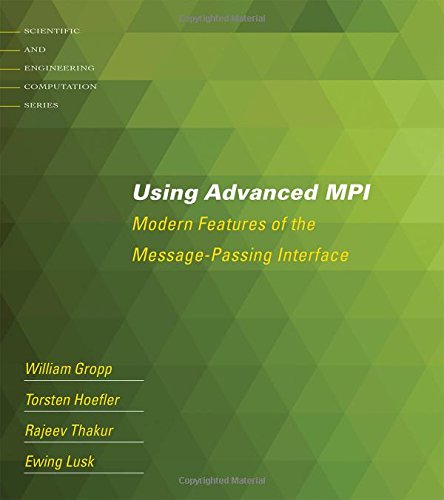

Most ebook files are in PDF format, so you can easily read them using various software such as Foxit Reader or directly on the Google Chrome browser.
Some ebook files are released by publishers in other formats such as .awz, .mobi, .epub, .fb2, etc. You may need to install specific software to read these formats on mobile/PC, such as Calibre.
Please read the tutorial at this link: https://ebookbell.com/faq
We offer FREE conversion to the popular formats you request; however, this may take some time. Therefore, right after payment, please email us, and we will try to provide the service as quickly as possible.
For some exceptional file formats or broken links (if any), please refrain from opening any disputes. Instead, email us first, and we will try to assist within a maximum of 6 hours.
EbookBell Team

5.0
90 reviewsThis book offers a practical guide to the advanced features of the MPI (Message-Passing Interface) standard library for writing programs for parallel computers. It covers new features added in MPI-3, the latest version of the MPI standard, and updates from MPI-2. Like its companion volume, Using MPI, the book takes an informal, example-driven, tutorial approach. The material in each chapter is organized according to the complexity of the programs used as examples, starting with the simplest example and moving to more complex ones.
Using Advanced MPI covers major changes in MPI-3, including changes to remote memory access and one-sided communication that simplify semantics and enable better performance on modern hardware; new features such as nonblocking and neighborhood collectives for greater scalability on large systems; and minor updates to parallel I/O and dynamic processes. It also covers support for hybrid shared-memory/message-passing programming; MPI_Message, which aids in certain types of multithreaded programming; features that handle very large data; an interface that allows the programmer and the developer to access performance data; and a new binding of MPI to Fortran.